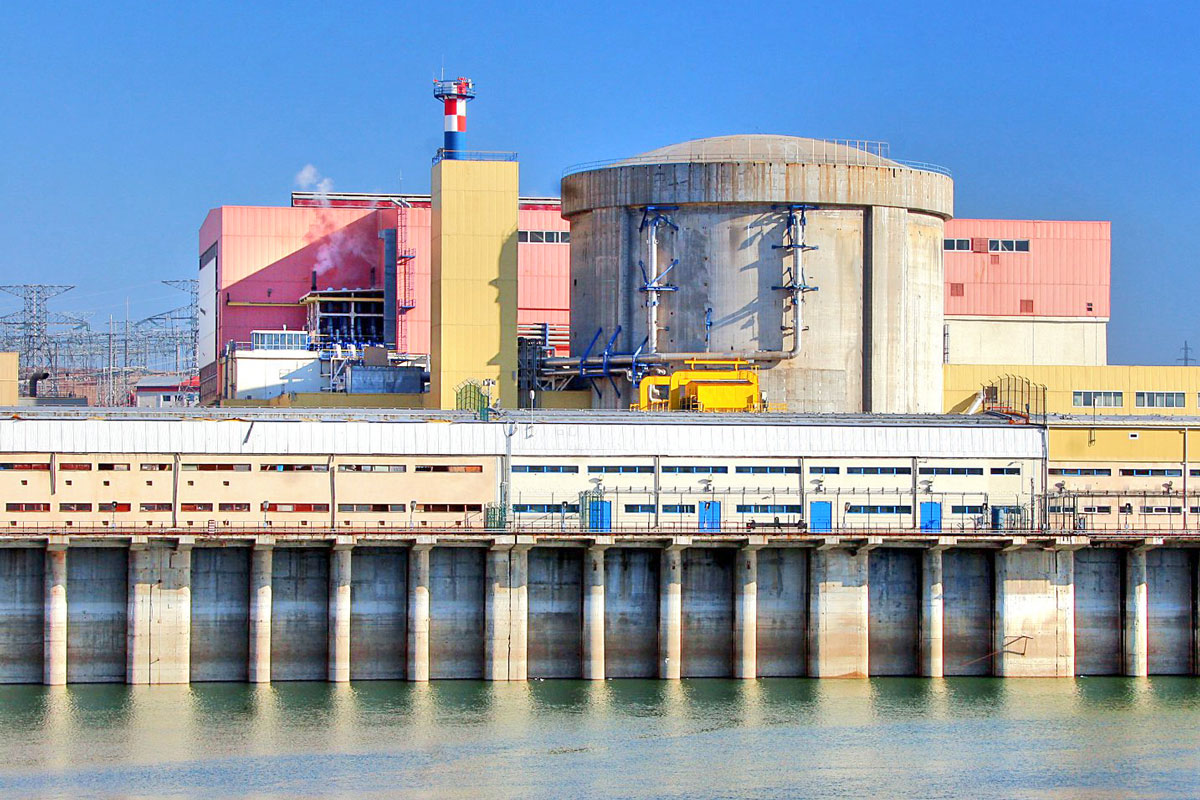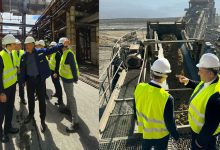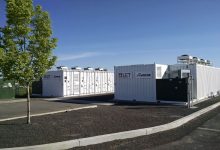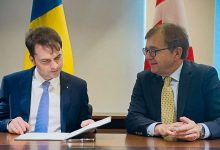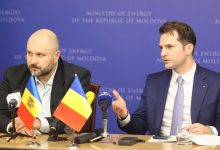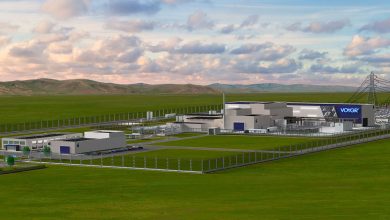Triple profit for Nuclearelectrica
For 2018, Nuclearelectrica (SNN) has planned investments of RON 244.8mln, and for 2019 – of RON 338.2mln. According to the draft revenue and expenditure budget of the company, for this year the company relies on a net profit of RON 295.27mln, estimated to increase to RON 314mln next year and to RON 320mln in 2020. Nuclearelectrica ended 2017 with a net profit of RON 303.05mln, almost three times higher than in the previous year, when it stood at RON 111.367mln. The plans are ambitious, but last year the company achieved only 27.6% of the major investment objectives included in the program.
The main investments scheduled by Nuclearelectrica during 2018-2019 target:
- Spent Fuel Intermediary Storage Facility (including SICA U#2) – RON 29.3mln;
- Modernization and extension of the physical protection system – RON 68.9mln;
- Improvement of Cernavodă NPP’s answer, respectively of nuclear security functions in case of beyond design base events, following the nuclear accident at the Fukushima 1 nuclear power plant, Japan – RON 80.1mln;
- Extending the life of U1 by retubing the reactor and retrofitting the main systems – RON 99mln;
- Increasing the reliability of the EVA 8000 storage system that centrally stores production data of Cernavoda NPP’s IT system by replacing it – RON 18.8mln;
- Increasing the safety in the operation of the power discharge system at Cernavoda NPP by upgrading the exhaust power transformers and securing a back-up transformer for two units – RON 11.2mln.
Investments in 2017
Nuclearelectrica has fulfilled only 27.6% of the major investment objectives in company’s program for 2017, and the degree of realization of the annual investment plan in terms of value cumulated since the beginning of the year is 40%, the report of company’s directors for last year shows. In conditions in which the investment plan hasn’t been fulfilled, Nuclearelectrica proposes shareholders to distribute over 90% of the net profit for 2017, which was RON 303mln, as dividends.
“The low degree of realization of the value plan of the investment program for 2017 is also explained by the share of amounts provided in the investment program related to the Head Office, postponed for 2018 (…) Most of the investment projects have accumulated delays both in the course of the procurement procedures and in their implementation, which explains the low degree of realization of the investment program of Cernavoda NPP,” the directors’ report shows.
Resources for major investments
Company officials mention in their report that “in the medium and long term, SNN must preserve its funding sources in order to implement significant investment projects.”
Among the major projects, Nuclearelectrica considers retrofitting Unit 1 of Cernavoda NPP, with an estimated value of EUR 1.2-1.5bn. For Unit 1, whose lifetime is nearing its end, retrofitting needs to be completed by 2025-2026, but the process itself must begin 10 years ahead. For example, technical studies should be completed in 2018. For the retrofitting of Unit 1 alone, investments of RON 99.4mln are provided in 2018 and 2019. There is also an investment in the detritiation facility with an estimated value of EUR 170-180 million, with the final investment decision being subject to approval by the General Meeting of Shareholders in the near future. It is necessary to reduce tritium emissions to the environment.
Acquisitions from the foreign market
In order to ensure stability, predictability and continuity of production, Nuclearelectrica would buy uranium octoxide from the market to process it at the Feldioara plant. The proposal is found in a document prepared by the Institute for Studies and Power Engineering (ISPE), at company’s request, within the strategy of the nuclear energy producer to diversify its sources of raw material supply necessary to produce nuclear fuel. The strategy, which will be subject to shareholders’ vote on 25 April, was necessary as the current situation is against ESA (Euratom Supply Agency) recommendations.
Nuclearelectrica has only two qualified suppliers of uranium dioxide: Cameco Inc. Ltd. (Canada) and the National Uranium Company, but as the latter has a difficult financial situation and will undergo a restructuring program, Nuclearelectrica risks not being able to provide the continuity and predictability of nuclear fuel production. With the approval of the strategy, Nuclearelectrica will purchase uranium octoxide from the market, process it at Feldioara to obtain uranium dioxide, which it will convert to nuclear fuel at FCN Pitesti.
Legislative changes will be necessary for this purpose, the quoted document also shows. Until then, SNN will initiate a procurement procedure for about 720 tons of uranium dioxide (UO2) needed for a period of 36 months, by concluding a framework contract with the two qualified suppliers. “This procurement contract for the necessary UO2 will clearly specify the conditions of delivery, as well as the fact that these deliveries will be made exclusively based on SNN request,” the company’s report also states.
Status of the ALFRED project
A Memorandum of Understanding was signed on 14 March between Nuclearelectrica (SNN) and the Partnership for Research and Education for Advanced Nuclear Systems (CESINA), represented by the Institute for Nuclear Research within the Autonomous Nuclear Energy Administration (RATEN ICN).
Signing this Memorandum aims at the involvement of both signatory parties in accelerating the development and use of advanced technologies with low emissions of carbon dioxide, improving new technologies and reducing costs by coordinating national research efforts, and also the interest and involvement of SNN in the development of nuclear technologies of the future, as a means of sustainable use of nuclear energy in Romania, complementary to the current nuclear program.
ALFRED project is a reference research project for Romania, being the main component of a unique research infrastructure to be built on the platform of the Pitesti-Mioveni Institute for Nuclear Research, and the Ministry of Energy supports and promotes nuclear research, identifying opportunities for cooperation and development of nuclear programs in Romania.
“This partnership consists of identifying opportunities for cooperation in punctual programs, tailored to the expertise and needs of both parties, for the development of the ALFRED project – the IV generation reactor in whose development Romania is involved through ICN Mioveni,” Iulian-Robert Tudorache, State Secretary in the Ministry of Energy, has mentioned. “Signing this Memorandum is an important step for Romania’s efforts in the ALFRED project. This partnership can only be beneficial, as it brings together the experience of researchers from both companies. It is the interest of each state to research and develop the latest, most efficient and safest nuclear systems, and from this point of view Romania is among the main players at European and global level. ICN Mioveni and Nuclearelectrica can collaborate for the development, design, testing, licensing and construction of the ALFRED project, developed by the international consortium FALCON. For the Ministry of Energy and for this Government, research in the nuclear sector and ensuring a mix that guarantees Romania’s energy security, but which also transforms us in a country with a leading role in the region in this field, are a priority,” the official highlighted.
“The signed agreement represents a very important step towards the increase of the national capabilities in the nuclear field necessary for the implementation of the project. The high expertise and existing experience of SNN regarding the authorization, design, commissioning and operation of nuclear installations brings an essential component in the implementation of the ALFRED project. At the same time, the entire project ensures significant opportunities for the nuclear industry which will bring an important contribution to the construction of the experimental installations and of the demonstration reactor, thus creating the premises for the development of the national industry in a highly technological field,” – Constantin Paunoiu, RATEN ICN Director, added.
The Memorandum of Understanding is valid for 3 years and can be extended through the agreement of the parties and does not imply financial costs to SNN, considering SNN’s contribution through the expertise of its specialists.
About the project
The ALFRED project, a demonstration reactor for fast lead cooled reactors technology, is the reference project of for the Romanian research, based on the existing technical capabilities and Romania’s experience in the nuclear field.
In 2013, an agreement for the incorporation of the international FALCON consortium (Fostering ALFRED CONstruction) was signed in Bucharest between RATEN ICN, Ansaldo Nuclear and ENEA.
The LFR technology (lead fast reactor) is one of the technologies that the European Union supports for the development of the IV generation reactors.
The main advantages of the development of the LFR technology are:
- The reduction of the quantity of produced radioactive waste;
- The more efficient use of the uranium resources;
- An increased economic efficiency;
- The increase of operational safety.
The IV generation reactors are programmed to fully use nuclear safety passive safety systems (which do not require intervention) and to guarantee an efficient use of nuclear fuel.
In fact, such a technology of IV generation, developed in Romania, argues the positioning of nuclear power as a source that fully answers to the environment requirements, market competitiveness and the constant improvement of nuclear safety functions on the long term.
ALFRED will have a total power of 300 MWh and will demonstrate the expected characteristics related to nuclear safety, economic competitiveness and the sustainability of the energy production.
ALFRED represents the main component of a unique research infrastructure which will be built on the ICN platform. This site, fully integrated with complementary European infrastructures, will ensure the experimental installations necessary for the full development of these technologies, from research to materials testing, components and processes, to the demonstration of the feasibility of the LFR technology.
ALFRED infrastructure will grant access to all the institutions interested in the development of IV generation innovative nuclear systems, research centres, universities, industry, regulatory bodies from Romania and from abroad.


